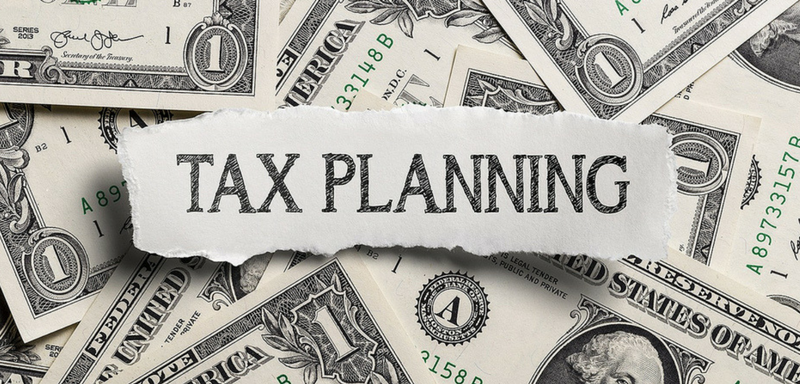
How the New Tax Bill Affects Real Estate Investors
Real estate investors, no doubt, have many questions about how the new tax bill will affect their bottom line.
The massive changes that come with this new plan mean investors have a lot to learn and understand. The impact of these changes when it comes to buying, selling, and investing in real estate requires making some adjustments. It”ll take time to see how these changes affect investors. But we did our research into the more pressing questions that come with real estate investing under the revisions.
It’s important to remember that individual circumstances, as well as local laws, play a role in each situation and can change the impact of these tax regulations in a variety of ways.
Continue reading for an in-depth breakdown of how the new tax plan can affect you.

Impact on Investors
This update to the tax bill is great news for investors and landlords who typically do business via pass-through entities like S-corps, real estate trusts, partnerships and limited liability companies, all which are about to get big tax breaks under the new plan.
In terms of asset protection, this is the best way to do business. As an investor or landlord, if someone were to sue you, pass-through entities would help limit your exposure and reduce the chances of someone taking every dollar to your name.
Another change is that the readjustment in the market will make acquiring rental property a more appealing proposition, for investors, than purchasing a property to flip.
Investors can maximize rental property income by emphasizing the benefits of renting over home ownership – no responsibility for home maintenance/repairs, no down payment, no real estate taxes, and no worries about declining home values.
However, since ramifications of the revisions are yet to play out, investors would be wise to proceed cautiously when transitioning to a new investment strategy. Most importantly, keep an eye on market trends and be ready to make adjustments as new information becomes available.

Changes in Deductions
Let’s be honest, running a business isn’t cheap. And for most business who take out loans to get things rolling, the interest that adds up isn’t cheap either.
While the existing law generally allows a deduction for business interest expenses, the tax bill limits that deduction to the sum of business interest income plus 30% of adjusted taxable income.
However, there are two major tax-law changes that will greatly affect this:
- A new limit on mortgage interest deductions
- The doubling of the standard deduction.
The new law allows deductions for mortgage amounts up to $750,000 for primary and secondary residences. The old law set the limit at $1 million, but only mortgages taken out after the new law went into effect will be subject to the $750,000 limit.
With the vast majority of homes costing less than $750,000, it may seem that the new mortgage limit won’t have a large impact other than in high-priced markets. However, the hike in the standard deduction will result in a significant reduction in the percentage of homeowners using the mortgage interest deduction.
According to Zillow, fewer than 15% of homeowners will use the deduction under the new law. In comparison to the 44% who used it under the previous law.
This will result in a loss of the home-ownership tax advantage over that of renting for the majority of homeowners. The impact will likely result in rising demand for rental property coupled with a dip in housing prices, in some markets by as much as 5% – maybe even more!
The lowering of the mortgage interest deduction, along with the cap on state and local tax, and the roughly doubling of standard deduction means less incentive for people to buy homes as opposed to continuing to rent. This would benefit landlords and investors because it will mean more competition for their rental properties.

Tax Deferment Strategies
The IRS provides an important exemption to capital gains taxation, made-to-order for real estate investors. Investment property owners can sell property at a profit and roll the money over into another property within 60 days without having to pay any capital gains taxes. Formally known as a Section 1031 exchange, named for the section of the U.S. Revenue Code that allows it.
Utilized by some of the smartest investors, a 1031 exchange, aka the Starker Exchange, is a powerful tax-deferment strategy.
There was a proposal to do away with this exchange yet it remains, with some updates. 1031 exchanges will only apply to real property, meaning land and buildings. Now taxpayers can only defer taxes from the actual property, not personal property like furniture and equipment.
1031 exchanges make it possible for real estate investors to defer paying capital gains tax almost indefinitely, which is another advantage over investing in mutual funds, stocks, bonds and other securities or collectibles.

Real Estate Rules
Purchasing a property for the purposes of inhabiting the space comes with a completely different set of rules.
Single homeowners living in the home for two of the past five years before selling it may be exempt from taxes on the first $250,000 of taxes ($500,000 for a married couple). Homeowners who just used the property as a rental may be able to defer taxes entirely using the 1031 exchange. This will allow them to sell the property and use the proceeds to buy another.
Capital gains tax is paid on the difference between the selling price of the property and the investors tax basis. Tax basis is the total amount of dollars invested in the property for which a deduction hasn’t previously been taken. Any deductions associated with the property are subtracted from the tax basis, and if the basis is higher than the sale a capital loss exists.
To reduce the tax, capital losses can be subtracted from a given year reflecting gains. They can be carried forward to cancel out capital gains in future years, if more losses than gains exist. Capital losses can even cancel out up to $3,000 in income on the tax return. Here’s the catch — investors taking a loss can’t buy the same property back for at least 30 days. Known as the “wash-sale rule,” this stipulation is an IRS regulation.
To conclude…
The new tax plan will undoubtedly change the way many investors do business.
Newly implemented policies will encourage both new and seasoned investors to find inventive techniques to be successful in the industry. Keeping the 1031 tax deferred exchange allows many investors to breathe a sigh of relief. More investors will be encouraged to put capital toward real estate, based on the way pass through income is handled.
To learn even more, check out these articles:
- U.S. Tax Reform’s Main Effects on Real Property Investors and Developers
- Tax Reform Holiday Gift for Real Estate Investors (podcast included)
- The Effect of the New Tax Reform Bill on Real Estate
- 6 Ways the New Tax Cuts and Jobs Act Impacts Individual Real Estate Investors
- How the Final GOP Tax Bill Will Affect Real Estate Investors




